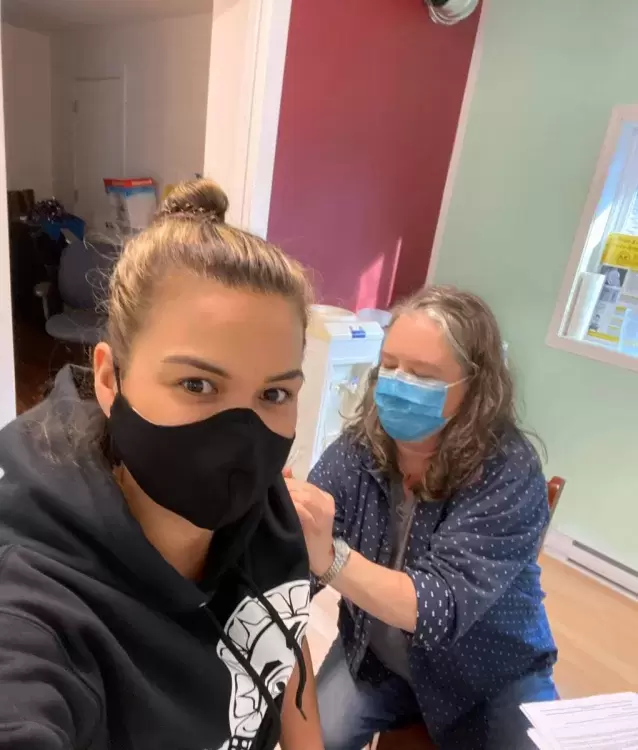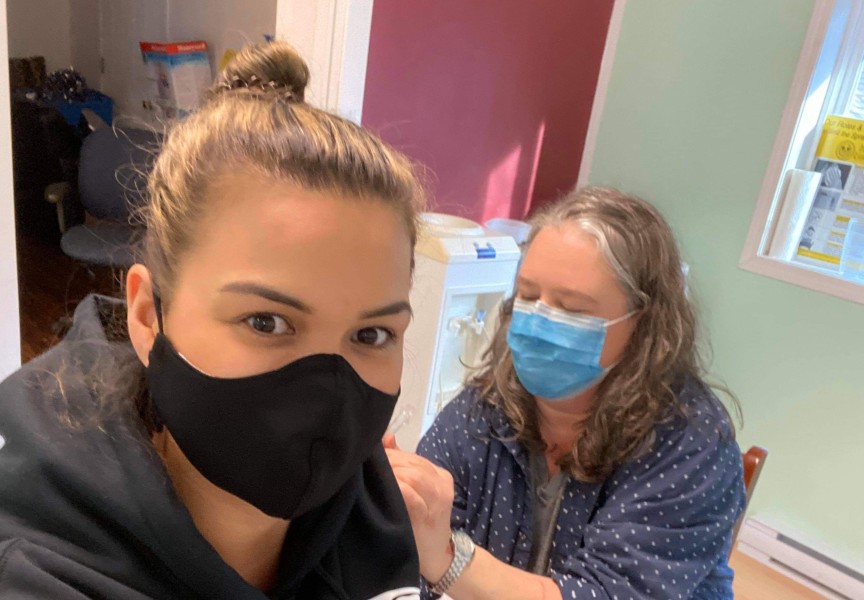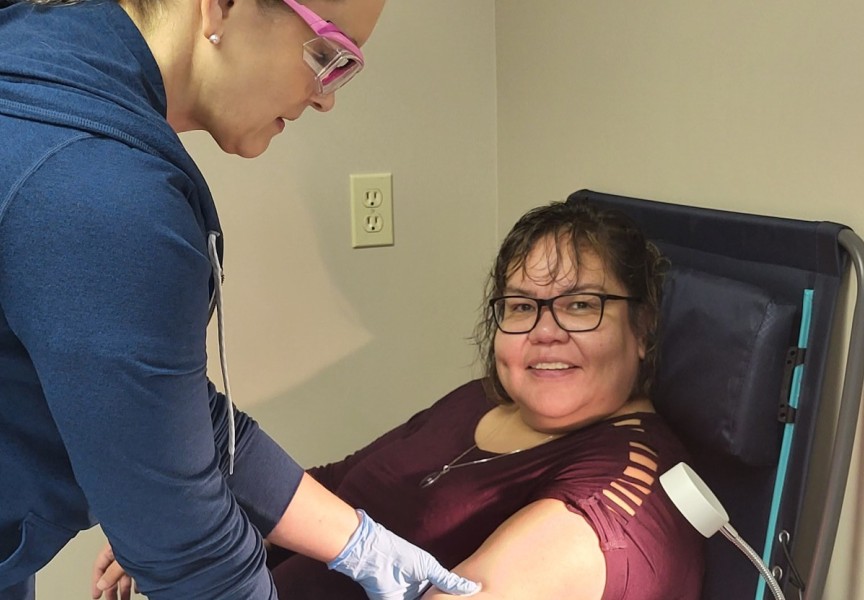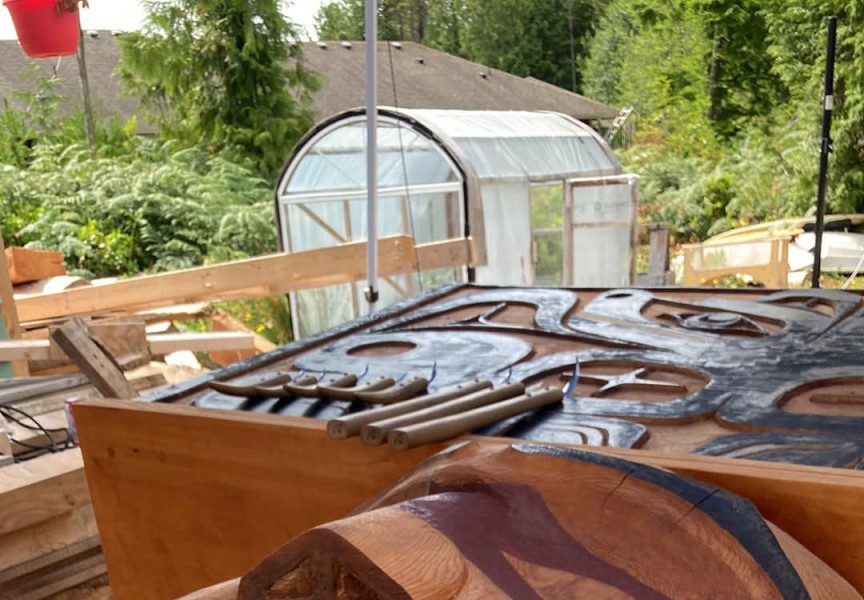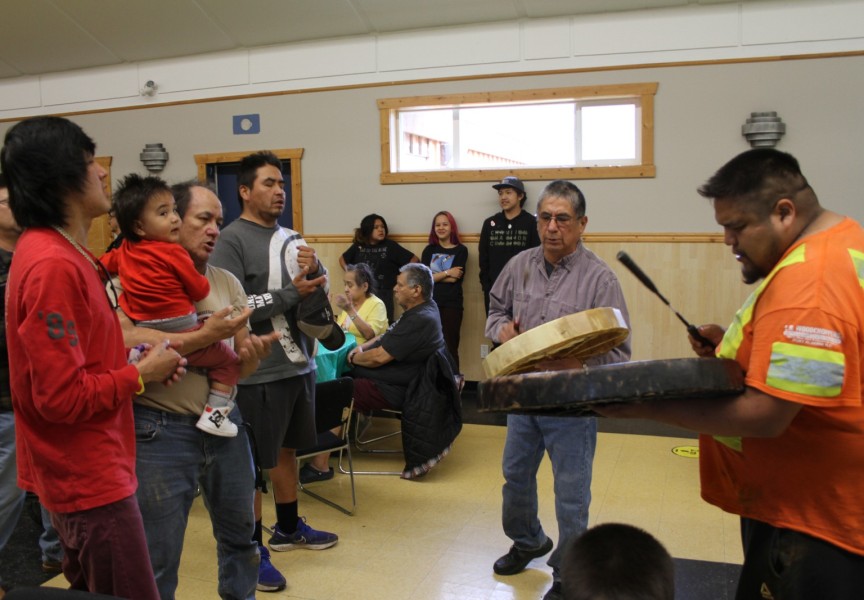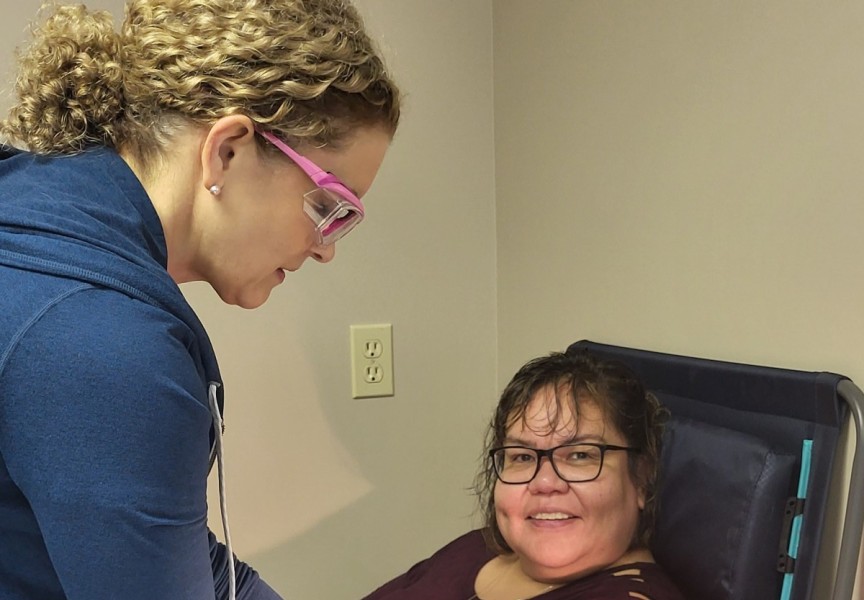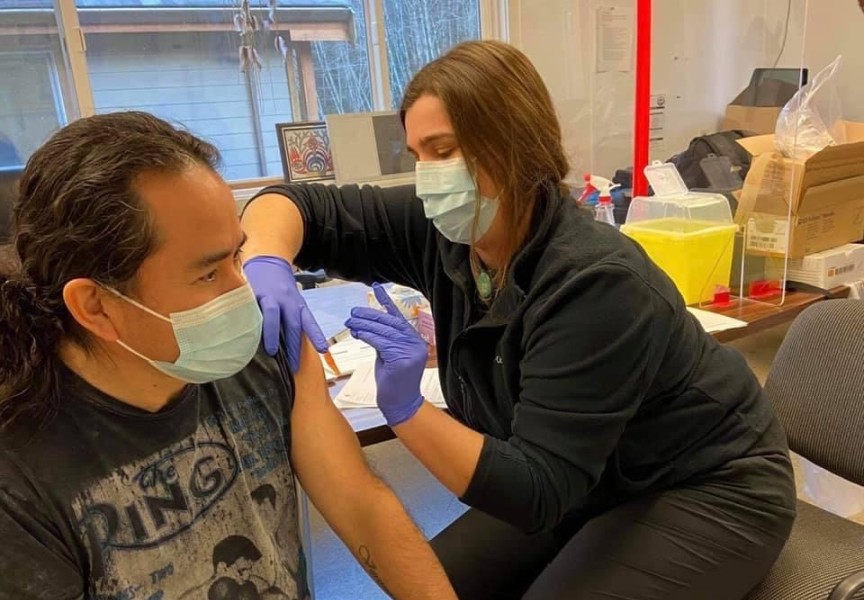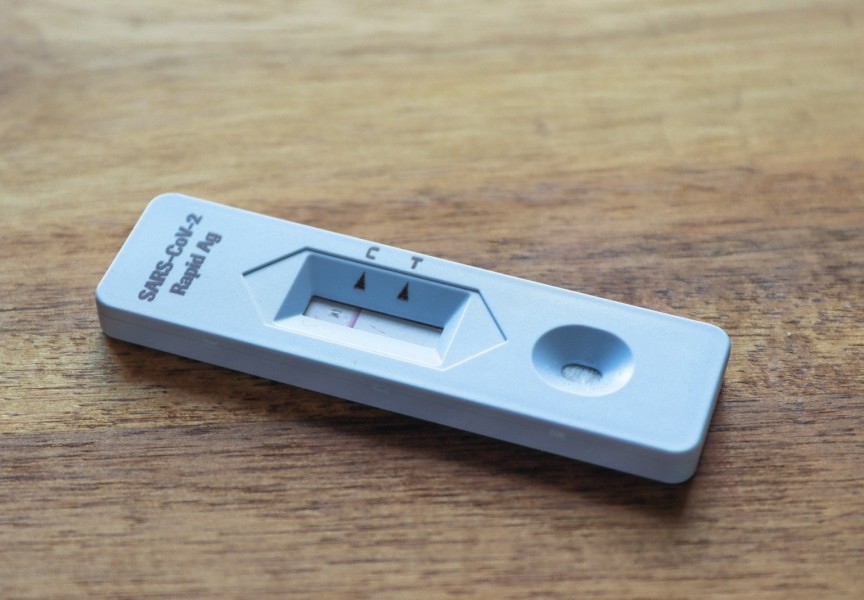A fourth wave of COVID-19 dominated by the highly contagious Delta variant is making its way through British Columbia - including in communities with high populations of Nuu-chah-nulth people like Nitinaht Lake, Tofino, and Port Alberni.
On Aug. 20 the Ditidaht First Nation’s elected chief and council issued a community update. In it, the nation acknowledges that some of their community members are coming down with cold and flu-like symptoms. Since that time at least some of the cases have been confirmed to be COVID-19.
The nation activated their COVID-19 response plan and are offering vaccine and drive-thru testing. They are in touch with health officials and indicate that it is Island Health that has records of any positive cases in the community. Chief and council do not have official numbers.
In her message to Indigenous people, Dr. Shannon McDonald, acting chief medical officer of the First Nations Health Authority (FNHA), noted that the COVID-19 Delta variant is much easier to pass on to others than the novel coronavirus strain that started to spread in late 2019.
Because it spreads more easily and has the potential to overwhelm the healthcare system, Delta is considered a variant of concern.
“[I]t’s spreading quickly throughout all regions of the province. In fact, it was responsible for 99 per cent of infections in the interior during the last week of July,” McDonald wrote.
The good news is that the provincial government’s proactive approach to getting vaccinations to remote Indigenous communities early on has produced positive results. Relatively few Indigenous people are now getting infected with the virus.
According to Island Health, those who identified as Indigenous in B.C. were three times more likely to end up in hospital and four times more likely to die than the general population at the start of the pandemic.
“Despite representing only 7.6 per cent of the population of Vancouver Island, the Indigenous population represented 34.9 per cent of COVID-19 cases,” they wrote in a report.
It was because of these numbers that the Indigenous populations in the province were prioritized. The results show a significant decrease in the numbers of new cases, according to data compiled by Island Health from April 1 to July 31.
“The Indigenous population represented 7.5 per cent of all COVID-19 cases during this time period,” states the VIHA document. “The incidence rate for this time period was 250 per 100,000 for the Indigenous population compared to 252 per 100,000 for the non-Indigenous population.”
Hospitalizations with COVID-19 have also declined for Aboriginal people on the island, after seeing a rate three times that of the rest of the population over the first year of the pandemic. Just five were tracked by Island Health from April 1 to July 31.
“Compared to the non-Indigenous population, those who self-identify as Indigenous experienced approximately the same rate of hospitalization,” continued the VIHA report. “The number of Indigenous COVID-19 deaths within this time period was 0.”
While the province has reported that most of the population ages 12 and over have received one or both shots, the recent spread of COVID-19 is impacting the unvaccinated and the partially vaccinated.
For this reason, McDonald advises everyone to exercise caution. All unvaccinated people, including children ages 2 and over, are strongly advised to wear masks at indoor public settings. Frequent hand sanitizing and social distancing from people outside your home is also recommended. Stay home if you feel sick.
“The great news is that those of us who have been fully vaccinated do have very strong protection against the Delta virus, with the risk of serious outcomes reduced by almost 100 per cent, and that we are providing protection for everyone around us, including those who can’t be vaccinated – for example, children under 12,” McDonald stated.
In a move to encourage people to get vaccinated, Provincial Health Officer Bonnie Henry issued new orders on Aug. 23. Starting Sept. 13, people will be required to provide proof of vaccination to attend certain public events and businesses.
“As of Sept. 13, one dose of vaccine will be required for entry to these settings,” states the health order. “By Oct. 24, entry to these settings will require people to be fully vaccinated at least seven days after receiving both doses.”
Those spaces affected include indoor ticketed sporting events, indoor and patio dining in restaurants, night clubs, movie theatres, fitness centres, casinos, and indoor organized events like conferences and weddings. People 12 and older will be required to show proof of vaccination.
“These new measures will help reduce transmission and keep our communities safe and ensure we can continue to keep businesses open and safely enjoy much-needed social events,” stated Dr. Henry.
“Vaccines are our ticket to putting this pandemic behind,” said Premier John Horgan. “So I call on all eligible unvaccinated British Columbians to roll up their sleeves to stop the spread, and help protect themselves, their loved ones and the people in their community.”
Ditidaht is advising people in their community to stay home if they are feeling unwell. Symptoms people there are reporting include cough, runny nose, sore throat, body aches, fever and chills.
On advice from the NTC nursing department, people not fully vaccinated with two shots who had a confirmed exposure to a positive case of COVID-19 need to isolate for 14 days. If symptoms develop, they may go for a test.
For those who have received two vaccinations, there is no requirement for isolation or testing if symptoms do not develop.
As of Friday, Aug. 20, there are 158,919 active cases in British Columbia. There were 663 new cases on Aug. 20 with a seven-day average of 549 new cases.
On Vancouver Island there were 391 active cases on Aug. 20, including 54 new cases.
There have been 1,785 confirmed deaths due to COVID-19 in B.C. since the pandemic began in March 2020.
According to health officials, COVID-19 vaccines are free and safe. The province reports that from Aug. 10-16, 71 per cent of cases affected people who were not vaccinated, while those with one shot comprised 16 per cent of these infections and fully vaccinated individuals accounted for 13 per cent of cases.
Over the same period, unvaccinated people took up 84 per cent of hospitalizations with COVID-19, with the partially and fully vaccinated comprising the remaining five and 11 per cent respectively.
For a listing of drop-in clinics in your area, visit https://www2.gov.bc.ca/gov/content/covid-19/vaccine/vaxforbc?bcgovtm=20210311_GCPE_Vizeum_COVID___Google_Search_BCGOV_EN_BC__Text#community-events

